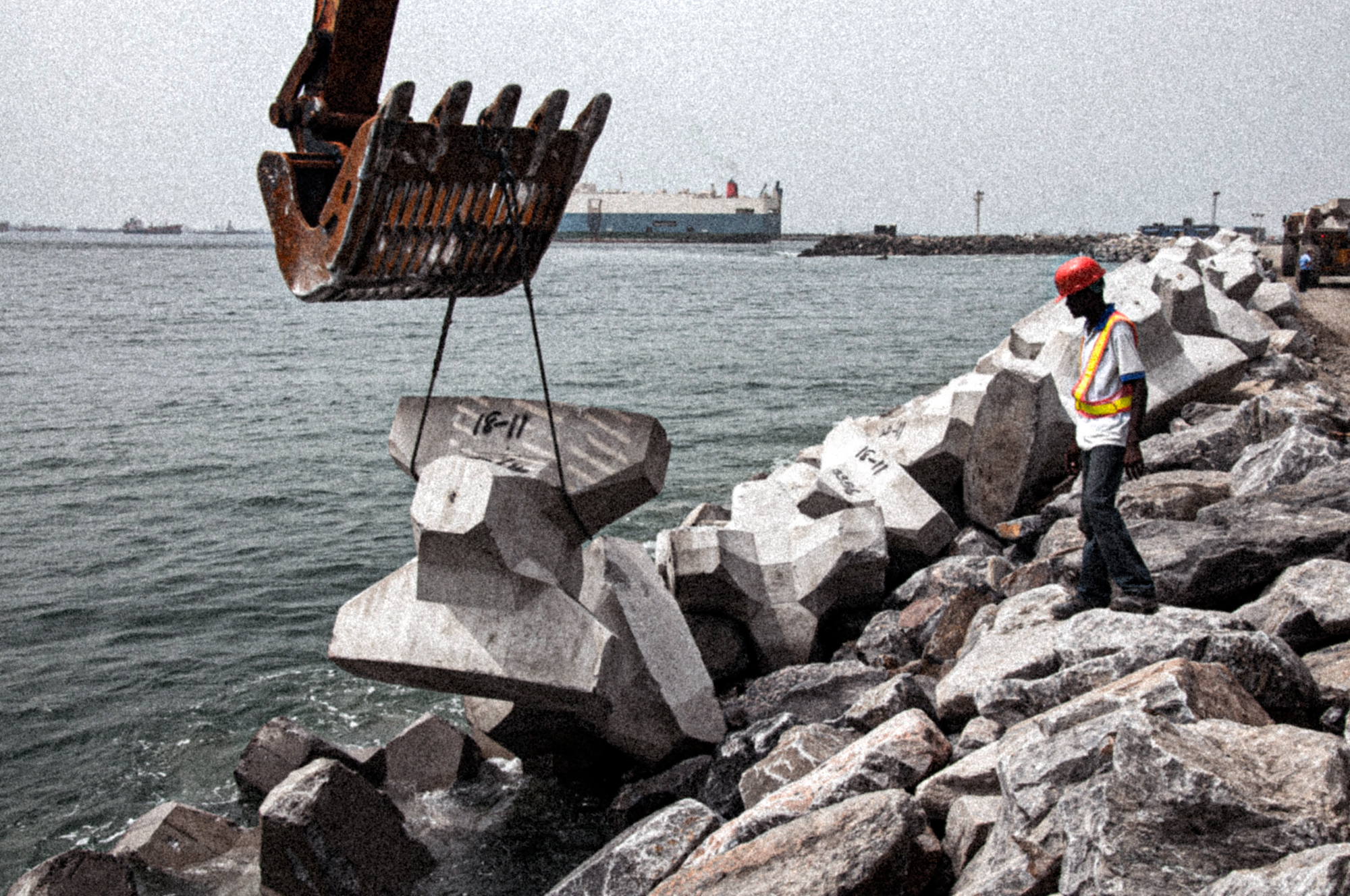EKO ATLANTIC/GREAT WALL OF LAGOS
Lagos, Nigeria
City Eko
| The city of Lagos is built on a group of islands and mainland delta, directly on the Atlantic Ocean. Eko Atlantic is a new development for a planned city in Lagos, Nigeria built on land reclaimed from the Atlantic Ocean. Eko Atlantic is sited on the southern edge of Victoria Island, a wealthy suburb of Lagos. The city, built on almost 4 square miles of land, will include seven districts with zones for a financial district, commercial and residential areas, as well as an area for tourist accommodations. It is expected to house 250,000 people and employ 150,000 people within its borders. The project is developed as a public-private partnership in which private companies and donors have provided funding and the Lagos State Government and federal government of Nigeria are strategic partners. The largest private contributor is a real estate development company, South Energyx Nigeria Ltd. The project completed dredging for land reclamation in 2013. The project has been met with criticism that its construction has contributed to coastal erosion and storm surges, with unsafe working conditions. To safeguard the new development, which was proposed in part to address a long period of recession in Lagos, the developers of the project also planned “The Great Wall of Lagos,” a sea wall that wraps around the city to protect it from the Atlantic. The wall has been particularly controversial because, while Eko Atlantic is on elevated land, the surrounding areas are lower, and could be inundated, leaving the older areas of the city more vulnerable while the new construction is protected. |
2002 - ongoing
2500 acres
22 feet above sea level

tags: coastal lands, elevation, fortification, resilience, engineering, private development, self-initiated, government-driven, masterplan, sea level rise and storm surge, increased storm frequency, landscape reclamation, displacement, densification, inequity, environmental justice, Africa, Annexed territory of Benin Empire, Afrotropical, Tropical Rainforest
References:
Ajibade, Idowu. “Can a future city enhance urban resilience and sustainability? A political ecology analysis of Eko Atlantic city, Nigeria.” International Journal of Disaster Risk Reduction 26 (2017): 85-92.
Gandy, Matthew. “Learning from Lagos.” New Left Review 33 (2005): 37.
Thomas, Kimberley Anh, and Benjamin P. Warner. “Weaponizing vulnerability to climate change.” Global Environmental Change 57 (2019): 101928.
Amakihe, Emeka. "Potential implication of Eko Atlantic city project, Lagos, Nigeria." Journal of Urban Regeneration and Renewal 11, no. 2 (2017):148-157
Links:
https://storymaps.arcgis.com/stories/38a6c47a65da40589223f53dcab6b05d
https://www.cnn.com/2015/08/10/africa/eko-atlantic-gbenga-oduntan-conversation/index.html
https://qz.com/africa/923142/the-flaw-in-the-construction-of-eko-atlantic-island-in-lagos/